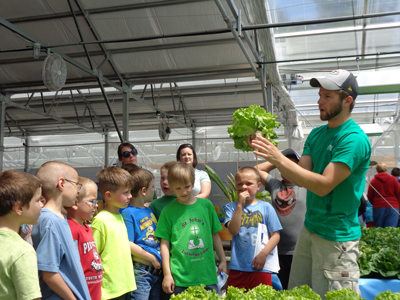Water temperature also has a dramatic effect on the speed of cycling. their optimal temperature is between 77-86° f (25-30°c). at 64°f (18°c) their growth rates is decreased by 50%. at 46-50ºf (8-10°c) it decreases by 75%, and stops all together at 39°f (4°c).. Aquaponic systems offer various advantages when it comes to producing food in an innovative and sustainable way. besides the synergistic effects of increased aerial co 2 concentration for greenhouse crops and decreased total heat energy consumption when cultivating fish and crops in the same space (körner et al. 2017), aquaponics has two main advantages for nutrient cycling.. This means you must also monitor your tank’s ph and temperature in addition to the ammonia levels. a balance needs to be found that will benefit plants and fish. keeping a ph of 6.0 – 7.0 should serve this purpose during cycling and your mature aquaponic system should have a ph of between 6.8 and 7.0..
Because aquaponics combines plants with animal production, it has a special set of water chemistry requirements, and optimal water quality is essential to a healthy, balanced, functioning system. this guide describes the most important water quality parameters that affect the health and productivity of aquaponics systems.. The production cycle for tilapia requires 24 weeks. the tilapia in each tank are at dif- in fact, when the optimum feeding rate ratio is maintained, there is excess water treatment capacity. in aquaponic systems using nutrient film technique, the hydroponic component. Nutrients are constantly added by fish waste or fertilizer, and water returns to the plants. every bit of water is reused over and over again, an impossibility in traditional, soil-based agriculture. since it is recirculated and recycled, water is never discharged in hydroponics or aquaponics. water loss occurs in two main ways: 1) evapo.
















